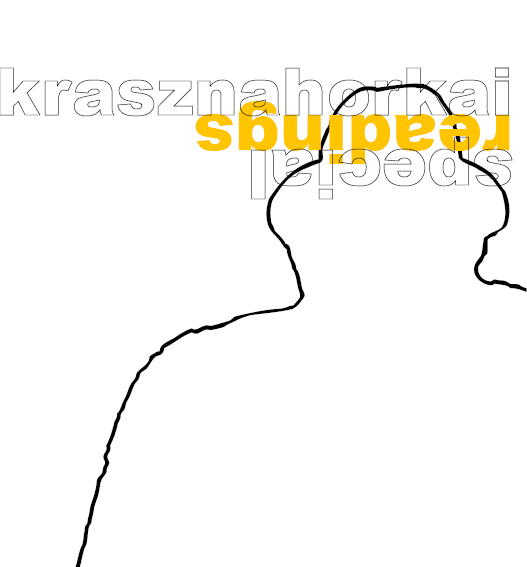

|
|
|
|
Readers in the English language will know the work of the
Hungarian novelist László Krasznahorkai through two novels,
The Melancholy of Resistance and War & War, both translated by
the poet George Szirtes, the first in 1998, the second in 2006. It is
clear from these translations that Krasznahorkai is a remarkable
novelist. For him, the sentence is an act of pure performance –
a tense high-wire act, a piece of grave and ambitious vaudeville
performed with energy both comic and ironic. But there is also
a compacted edge to his prose; he is not interested in language
merely for its own sake. Prose for him is a complex vehicle
moving through a world both real and surreal with considerable
precision and sharpness. He makes demands on his readers as
much as he does on the language he engages with. The Melancholy
of Resistance has no paragraph breaks, for example; War & War is
written in a set of short single-sentence sections.
Krasznahorkai allows the meandering cadence of his prose,
much like the prose of Samuel Beckett, to mirror the enquiring
mind at work, thinking, analysing, noticing, remembering, sensing,
contradicting, reflecting. Like with Beckett too, there is a
deep and searing tenderness at the heart of his universe, made all
the more true and real by the mixture of sheer comedy and pure
gloom that he lets into his pages.
Language for Krasznahorkai is a force struggling against the
domination of cliché and easy consumption, offering small, wellorganised
revolts, plotting in upstairs rooms for plenitude and
jagged rhythm, arming itself with clauses, sub-clauses and asides,
preparing high-voltage assaults on the reader’s nervous system.
Krasznahorkai is concerned with limits, with what can happen
if language is pushed further than its own decorous rules might
suggest. Or what can happen if consciousness itself is rendered as
infinite in its systems and capable of doubling back and feeding
on itself before it edges forward again. Or what can happen if
knowledge, or action, or memory, or voice, is each incapable
of being easily tamed by narrative. For this reason, he is, as a
story-teller, fascinated by extremes, by the cosmos itself, by the
possibility of apocalypse.
He is also interested in power, in establishing, almost as an act
of will, a world elsewhere in his fiction, a world not made credible
by easy metaphor or casual allegory. The world of his fiction
is enclosed and stable, it must be taken on its own terms. Reality
for him richly inhabits the very world he creates in his prose; it
is enacted rather than reflected in the sentences and pages that
he makes.
His work is full of menace, but it is would be a mistake to read
the menace either as political or as coming from nowhere. His
imagination
feeds on real fear and real violence; he has a way
of making fear and violence seem all the more real and present,
however, by removing then from a familiar context. He places
them in a dark context of his own choosing. In this way, he
stands closer to Kafka than to Beckett, but he is close to neither
in his interest and delight in verbal pyrotechnics, in allowing the
sheer energy of his long exciting sentences full sway. He is alone
among European novelists now in the intensity and originality
of his exploration of the dim line which divides nature from
culture, destiny from history.
It is fascinating to watch the work of László Krasznahorkai
as though in action, spurred into sentences by the suggestive
images of Max Neumann. The writer worked first from one of
Neumann’s images and then Neumann, spurred on in turn by the
words, made the rest of the images to which Krasznahorkai, his
mind let loose by the captured visuals, responded by writing the
other thirteen texts. This collaboration, this way of being inspired
and provoked, offers us a key to the sources of composition of one
of the most mysterious artists now at work.
Colm Tóibín, July 2010